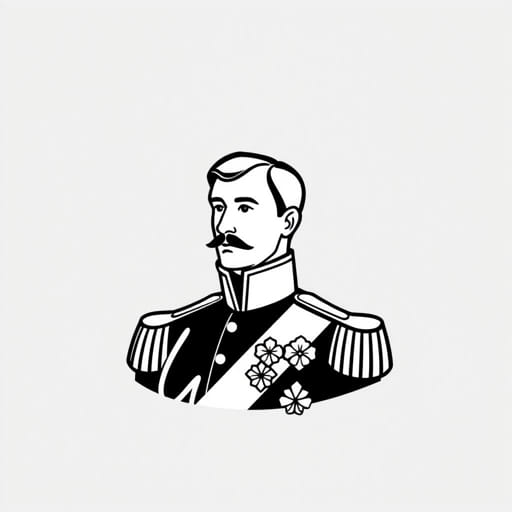Archduke Franz Ferdinand is a figure forever etched in history, primarily because his assassination in 1914 was the spark that ignited World War I. His identity as a member of the Habsburg dynasty has been a subject of both historical clarity and occasional confusion, but understanding his lineage is key to appreciating the political and social context of his life. The Habsburg family was one of the most powerful royal houses in Europe, ruling vast territories and shaping the continent’s history for centuries. Franz Ferdinand’s relationship to this dynasty influenced his position, his marriage, and ultimately the fate of the Austro-Hungarian Empire.
Who Were the Habsburgs?
Origins and Historical Significance
The House of Habsburg originated in the 11th century in what is now Switzerland. Over the centuries, it grew to become one of Europe’s most influential royal families. The Habsburgs ruled the Holy Roman Empire for hundreds of years and later became emperors of the Austro-Hungarian Empire. Their rule extended over modern-day Austria, Hungary, Czech Republic, parts of Italy, and more.
Political Power and Influence
By the 19th century, the Habsburgs were synonymous with the Austro-Hungarian Empire’s monarchy. Their control over a multi-ethnic empire required a complex political balancing act. The dynasty’s importance was not only symbolic but also practical, as they were the central authority that managed diverse populations and vast territories through intricate diplomacy and governance.
Franz Ferdinand’s Place in the Habsburg Dynasty
Lineage and Family Background
Franz Ferdinand was born in 1863 into the House of Habsburg-Lorraine, a branch of the broader Habsburg dynasty. His father was Archduke Karl Ludwig, the younger brother of Emperor Franz Joseph I. This made Franz Ferdinand the heir presumptive to the Austro-Hungarian throne after the death of Crown Prince Rudolf, who was the emperor’s only son.
Significance as Heir
When Crown Prince Rudolf died in 1889, Franz Ferdinand became the next in line to succeed Emperor Franz Joseph. His position was crucial because it placed him at the center of imperial politics and made him a symbol of the future of the empire. His policies and personal views were often at odds with other members of the court, which contributed to the complex political environment preceding World War I.
The Controversies Surrounding His Habsburg Status
Morganatic Marriage and Succession Issues
One of the major controversies in Franz Ferdinand’s life was his marriage to Sophie Chotek, a noblewoman but not of equal royal rank. This marriage was considered morganatic, meaning Sophie and their children were excluded from succession rights. The emperor did not approve of the union, and this caused friction within the royal family and court circles.
Implications for the Dynasty
The morganatic nature of the marriage meant that while Franz Ferdinand was the heir apparent, his children could not inherit the throne. This complicated the succession line and caused tension within the Habsburg family. It also contributed to Franz Ferdinand’s distinct position as an heir who had his own views on reforming the empire but faced opposition from conservative factions.
Franz Ferdinand’s Role in Austro-Hungarian Politics
Political Vision and Reform Ideas
Franz Ferdinand was known for his interest in reforming the Austro-Hungarian Empire to better manage its diverse ethnic groups. He favored a federal structure that would grant greater autonomy to various nationalities within the empire. His vision was to maintain the monarchy while adapting to modern political realities.
Opposition and Challenges
Despite his position as heir, Franz Ferdinand faced significant opposition from Hungarian politicians and other influential groups who preferred the status quo. His ideas were sometimes seen as too progressive or threatening to entrenched interests, which made his role in politics both influential and contentious.
The Assassination and Its Impact
The Sarajevo Incident
On June 28, 1914, Franz Ferdinand and his wife Sophie were assassinated in Sarajevo by Gavrilo Princip, a Bosnian Serb nationalist. This event triggered a chain of diplomatic crises that led to the outbreak of World War I. The assassination symbolized the deep ethnic and national tensions within the Austro-Hungarian Empire and the Balkans.
Legacy Within the Habsburg Context
Franz Ferdinand’s death marked the beginning of the end for the Habsburg monarchy. The war that followed led to the empire’s dissolution in 1918. Although he never ruled as emperor, his role as heir and the circumstances of his death made him a pivotal figure in the history of the Habsburgs and Europe.
Franz Ferdinand was undeniably a member of the Habsburg dynasty, specifically the House of Habsburg-Lorraine, which was the ruling family of the Austro-Hungarian Empire. His life as heir apparent, his controversial marriage, and his political views provide essential insights into the challenges faced by the Habsburgs in the early 20th century. Understanding his identity as a Habsburg is crucial to grasping the complex political landscape that ultimately led to World War I and the reshaping of Europe’s borders. His legacy continues to be studied as a key element in both the decline of imperial Europe and the rise of modern nation-states.
